Judge Not
 It has been observed in this humble cliche, that every dog has his day, and while this observation may seemingly have involved members of the canine world, yet there is a much deeper and more philosophical content which could be applied in various cyclic movements
It has been observed in this humble cliche, that every dog has his day, and while this observation may seemingly have involved members of the canine world, yet there is a much deeper and more philosophical content which could be applied in various cyclic movements involving mankind, individually or collectively, whether they concerned the rise and fall of civilizations, or more individualistic expressions such as kings, emperors, ruling deities, religions, hierarchies, etc., for these too, have also lived in their day and vanished in time. While such various expressions and re-expressions always idiomatically assumed the environmental form of the race which so produced it, or into such singular expressionists so connected, the principles behind such resurgent cyclic movements were, and are basically the same, and are as true today as they were when they happened many thousands of years ago.
involving mankind, individually or collectively, whether they concerned the rise and fall of civilizations, or more individualistic expressions such as kings, emperors, ruling deities, religions, hierarchies, etc., for these too, have also lived in their day and vanished in time. While such various expressions and re-expressions always idiomatically assumed the environmental form of the race which so produced it, or into such singular expressionists so connected, the principles behind such resurgent cyclic movements were, and are basically the same, and are as true today as they were when they happened many thousands of years ago.
To understand then, these basic principles which engender cyclic movement, either individually or, as they are 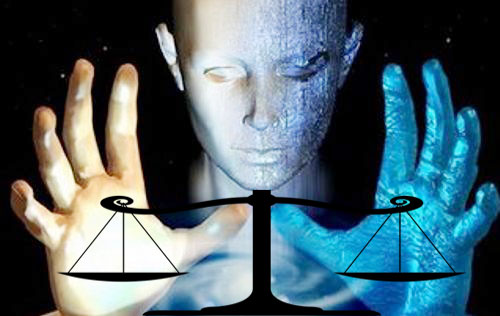 resumed in the collective masses of some civilization, we will always find the underlying motions of such cyclic movements, whether progressive or retrogressive, as comprising delicately balanced equilibriums, between two widely divergent polarities of life — good and evil. In a progressive evolutionary movement, as it concerns the development of a race of people, a civilization, or any singular person, any progressive balances which can be called good or constructive must be maintained in order to offset the corrosive action of the negative or evil polarity.
resumed in the collective masses of some civilization, we will always find the underlying motions of such cyclic movements, whether progressive or retrogressive, as comprising delicately balanced equilibriums, between two widely divergent polarities of life — good and evil. In a progressive evolutionary movement, as it concerns the development of a race of people, a civilization, or any singular person, any progressive balances which can be called good or constructive must be maintained in order to offset the corrosive action of the negative or evil polarity.
While in ordinary evaluations, such opposites as good and evil are highly contradictory to each other in either form or appearance, yet in a more abstract evaluation, one is as necessary as the other. Briefly then, such  polarities refer to such expressive movements of various forms and their motional impedences as traveling in two different directions; and such motional impedences which are set up in either of these motions, always make their appearance upon the surface of life, either as a constructive element or a destructive one. While on the surface these two appearances may present an enigma, it must be remembered (as was stated), that one is just as necessary as the other, and so far as surface appearances are concerned, any such constructive values which you now may possess, could be called negative by comparison in the appearances of more highly developed constructive appearances.
polarities refer to such expressive movements of various forms and their motional impedences as traveling in two different directions; and such motional impedences which are set up in either of these motions, always make their appearance upon the surface of life, either as a constructive element or a destructive one. While on the surface these two appearances may present an enigma, it must be remembered (as was stated), that one is just as necessary as the other, and so far as surface appearances are concerned, any such constructive values which you now may possess, could be called negative by comparison in the appearances of more highly developed constructive appearances.
In other words, good and evil are only a system of comparisons as they relate to any emotional appearances of life; and it is well to consider many known and sometimes unknown factors which may be involved before jumping to hasty conclusions. Therefore in such personal evaluations, as they concern the planet earth, the many races of people which have come and gone, their method of interpreting life, etc., has been maintained on certain basic levels, and these levels of interpretation are just the same today as they were thousands of years ago.
By comparison, in various social levels as they appear at the present time, we could say that the so-called intellect who graduates from a great university is little different than the dark-skinned aborigine in the far-off jungle. This  evaluation may sound startling, but will appear as fact when a more complete analysis is made into the various subconscious reflex actions which motivate both men; and that in the college graduate, we find the same set of subconscious reflexes as are found in the savage.
evaluation may sound startling, but will appear as fact when a more complete analysis is made into the various subconscious reflex actions which motivate both men; and that in the college graduate, we find the same set of subconscious reflexes as are found in the savage.
Therefore, the great difference with the so-called intellectual, lies purely within the realm of surface developments. He possesses a certain amount of knowledge which was incurred in his educational process. However, he is in no wise possessed of a more purely constructive mind, than is the aboriginal, and the basic reference level for any thinking process is subconscious comparisons. The constructive aptitude of either man is in no wise different unless we take our analysis and probe far deeper into the lives of either individual. Here we will find the true differences.
The college graduate may be one of the more advanced intellects, and in his evolutionary pathway through  thousands of past lifetimes, he will have gained sufficient knowledge and affiliations with higher spiritual worlds as well as a more direct aptitude to function with the higher superconscious self, which will make him different than the jungle savage. In fact it will make him different from his fellow graduates, as well as most of the population of the world.
thousands of past lifetimes, he will have gained sufficient knowledge and affiliations with higher spiritual worlds as well as a more direct aptitude to function with the higher superconscious self, which will make him different than the jungle savage. In fact it will make him different from his fellow graduates, as well as most of the population of the world.
And here again we find a more striking difference between such polarities as can be considered good or evil; for in any case, where an individual reaches the attainment or function with the Higher Self he can therefore be considered one of these higher more positive polarities of which we have spoken. Conversely, any other individual not so possessing this working contact with the Higher self is an evil or destructive entity; and that when such a person individually or collectively meets one of these Higher Creative entities, there is an immediate and sometimes explosive reaction which takes place.
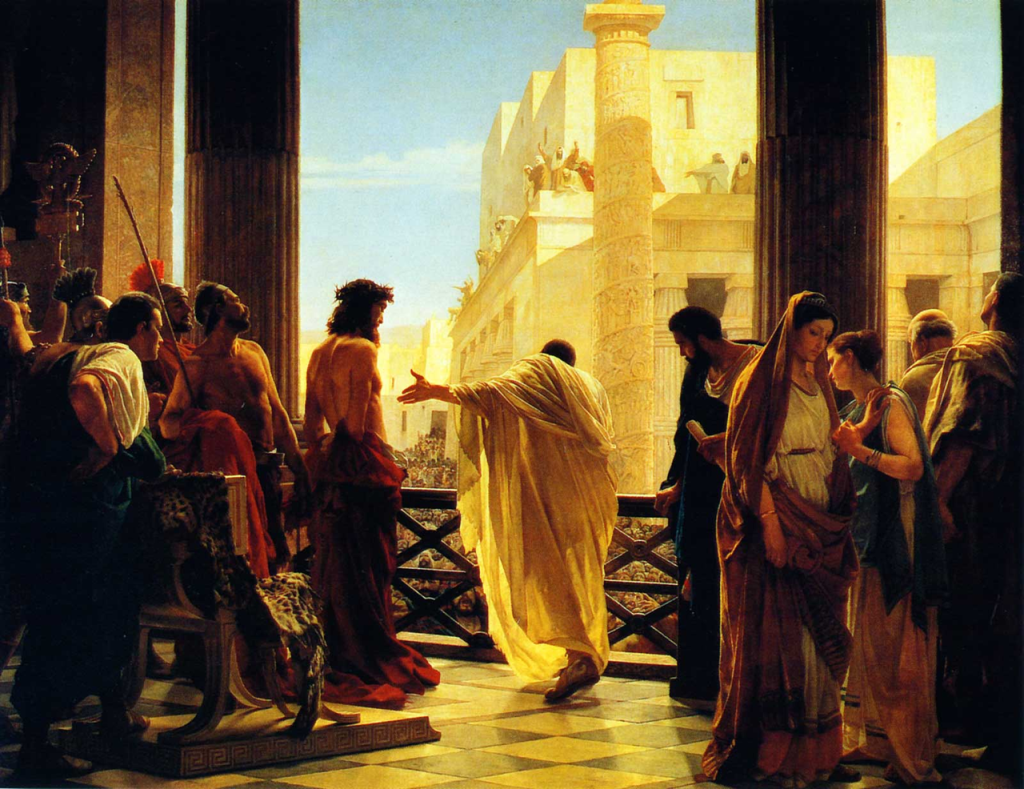 In other words, the negative entity feels a deflation of ego; he does not understand, either the working of the higher mind, or its higher constructivisms. He is confronted by the obvious fact that his values of life are inferior by comparison. He then becomes a classical rhetorician. He will seek in one form or another to declaim the higher expression and the expressionist. If he is supported en masse, by a group who are also rhetorical, the effect might well be a quick and drastic elimination of the Higher expressionist. This has been very dramatically expressed in a number of historical configurations. The number of constructionists who function from the higher level have always been few and far between, in comparison with the masses of humanity who live under the rhetorician’s rule and who so express themselves likewise.
In other words, the negative entity feels a deflation of ego; he does not understand, either the working of the higher mind, or its higher constructivisms. He is confronted by the obvious fact that his values of life are inferior by comparison. He then becomes a classical rhetorician. He will seek in one form or another to declaim the higher expression and the expressionist. If he is supported en masse, by a group who are also rhetorical, the effect might well be a quick and drastic elimination of the Higher expressionist. This has been very dramatically expressed in a number of historical configurations. The number of constructionists who function from the higher level have always been few and far between, in comparison with the masses of humanity who live under the rhetorician’s rule and who so express themselves likewise.
To quote a few specific examples, let us first turn to Jesus of Nazareth, and how his constructive mission on earth 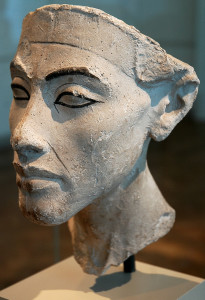 was drastically climaxed in murder brought about by the rabbinical rhetoricians of the temple. Again the spotlight of attention goes back much further into history – more than a thousand years before Jesus. An Egyptian Pharaoh named Akhenaten, was purged from the face of the earth through the poison cup by the hierarchy of priests, the old order of rhetoricians, who returned Egypt to its old black magic.
was drastically climaxed in murder brought about by the rabbinical rhetoricians of the temple. Again the spotlight of attention goes back much further into history – more than a thousand years before Jesus. An Egyptian Pharaoh named Akhenaten, was purged from the face of the earth through the poison cup by the hierarchy of priests, the old order of rhetoricians, who returned Egypt to its old black magic.
Buddha died unknown except in his own province, for his views about obtaining 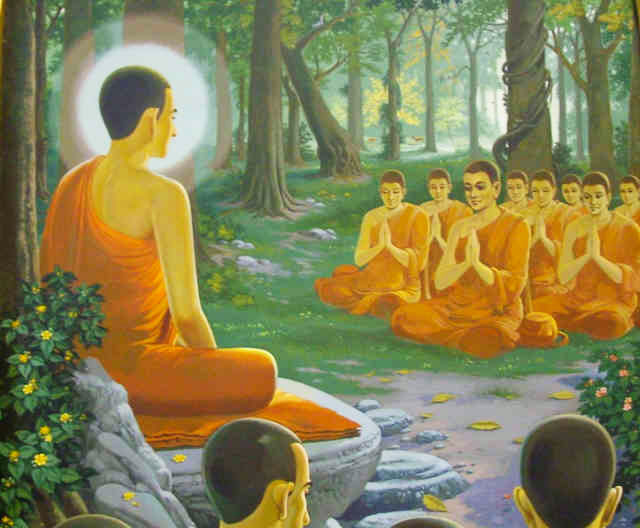 junction with the Higher Self, or Nirvana, were too advanced for the rhetoricians of his time. Not until 250 years later did King Asoka bring forth the teachings of Buddha. (And was not King Asoka, Buddha reincarnate?) Yet hardly as this king had died, rhetoricians had already begun their deadly work. Soon the simple teachings of Nirvana began to be compounded with an ever increasing number of devious ways of attainment and paths to follow. Today Buddha lives in the Temples of India with more than thirty million other gods, all produced by the rhetorical mind.
junction with the Higher Self, or Nirvana, were too advanced for the rhetoricians of his time. Not until 250 years later did King Asoka bring forth the teachings of Buddha. (And was not King Asoka, Buddha reincarnate?) Yet hardly as this king had died, rhetoricians had already begun their deadly work. Soon the simple teachings of Nirvana began to be compounded with an ever increasing number of devious ways of attainment and paths to follow. Today Buddha lives in the Temples of India with more than thirty million other gods, all produced by the rhetorical mind.
Socrates, too, found death through the poisoned cup, forced upon him (or banishment) by the rhetoricians of his  time. Julius Caesar, a constructionist, found death at the hands of his son, by a cleverly engendered plot conceived by the master rhetorician, Cassius, who was jealous of Caesar and his accomplishments, and Brutus, made a malcontent by believing his mother was Caesar’s concubine, performed the historical mission of destruction.
time. Julius Caesar, a constructionist, found death at the hands of his son, by a cleverly engendered plot conceived by the master rhetorician, Cassius, who was jealous of Caesar and his accomplishments, and Brutus, made a malcontent by believing his mother was Caesar’s concubine, performed the historical mission of destruction.
Found in every rhetorical mind, is the desire to destroy or tear down that 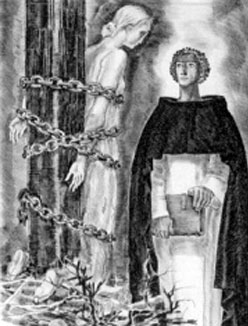 which is not understood; and there are countless thousands of recorded and unrecorded examples of rhetorical destruction throughout the Middle Ages. Through the hierarchy of a great church which functioned either independently, or through the courts of inquisition, thousands of persons were plundered and murdered. Millions were burned at the stake, torn on the rack, or hung on the gallows by command of the rhetorical minds, whose power came from those who wore the robes; and in their self-deification, erected great preponderant systems of rhetorical elements.
which is not understood; and there are countless thousands of recorded and unrecorded examples of rhetorical destruction throughout the Middle Ages. Through the hierarchy of a great church which functioned either independently, or through the courts of inquisition, thousands of persons were plundered and murdered. Millions were burned at the stake, torn on the rack, or hung on the gallows by command of the rhetorical minds, whose power came from those who wore the robes; and in their self-deification, erected great preponderant systems of rhetorical elements.
Thus as it has always been through countless years of time, epochs and ages, the rise and fall of civilizations, all 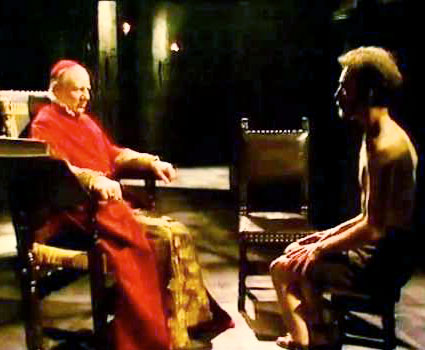 have had their constructionists and, while all of these constructionists have made vital contributions to the posterity of mankind, yet, inevitably have they been destroyed by those who benefited the most. And unable to understand this beneficent action, they retaliated and reacted in the typical rhetorical way.
have had their constructionists and, while all of these constructionists have made vital contributions to the posterity of mankind, yet, inevitably have they been destroyed by those who benefited the most. And unable to understand this beneficent action, they retaliated and reacted in the typical rhetorical way.
To those who read these or any pages so brought forth by this author, let them take heed and warning. While consciously to yourselves you may be drawn to the higher expressions of life, you may acknowledge this higher way; you may even claim to be expressionists of this higher way. Such as you are, by your fruits ye shall be known, and let not this fruit contain the bitter gall of the rhetorical mind, eve n though your inclinations, your aspirations and idealisms are of the highest. There is still much to learn and understand; and failure to learn or understand will create within you, a possible negative attunement and through this attunement, the old subconscious, lower, rhetorical self will strike. You may feel these destructive blows either as mild criticisms or comparisons with other things which you understand better; or you may strike the heaviest of all reactionary blows — complete condemnation.
n though your inclinations, your aspirations and idealisms are of the highest. There is still much to learn and understand; and failure to learn or understand will create within you, a possible negative attunement and through this attunement, the old subconscious, lower, rhetorical self will strike. You may feel these destructive blows either as mild criticisms or comparisons with other things which you understand better; or you may strike the heaviest of all reactionary blows — complete condemnation.
In any case however, dear soul, whether this blow be light or heavy, it is one which you have struck against yourself. You, not I, shall feel its impact. You will feel it in the years to come; for as these blows strike within your mind, they will destroy your temple and one which you have to painstakingly, and with tears and sweat, rebuild in future lives.
heavy, it is one which you have struck against yourself. You, not I, shall feel its impact. You will feel it in the years to come; for as these blows strike within your mind, they will destroy your temple and one which you have to painstakingly, and with tears and sweat, rebuild in future lives.
No man’s opinion can change the face of Truth, for Truth remains inviolate, a complete function of the Infinite Mind. Each man, in daily thought and action, interprets some infinitisimally small portion of Truth into his daily life, and he can, conversely, by denying any such expressions of Infinite action or wisdom, close himself off from this ever sustaining Life Force.
If you do not understand, do not condemn that which you do not understand, but condemn only your own ignorance. The Infinite is just that — Infinite — and in which no man’s mind or hands lies the power to take from or add to this Infinite.
Excerpt from Infinite Contact
Posted in Book Excerpts, Infinite Contactwith comments disabled.





